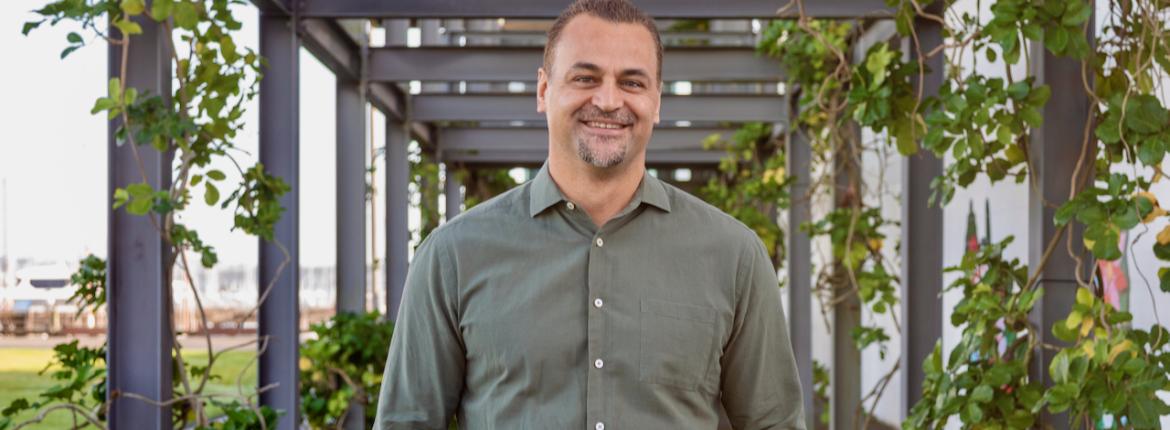Make a date once a year to check your health and keep your life in balance. That’s the message writer, lecturer and broadcaster Professor Scotty Morrison shares at every opportunity in his public speaking circuit and in his work as an advocate for te reo Māori.

Professor Scotty Morrison. Photo by Jessie Casson
Scotty is compelled to encourage men, in particular, to look after their health and wellbeing, as he reckons men are not always good at it. “There is something intrinsic in men; we think we’re bulletproof! But we’re not.”
Having been involved in Men’s Health Week for a few years now, he’s keen to reiterate the ‘annual warrant of fitness’ notion. He chose Matariki as the time to focus on his health, to check that all is well.
“Some people might use their birthdays or wedding anniversaries or whatever – but having a cue works. For me, whenever Matariki rolls around, it’s the new year and I go and see the doctor and get my blood pressure and my heart checked…”
This is also when he considers the balance of his life, a philosophy based on the holistic Māori model of Te Whare Tapawhā. Translated as ‘the house of four walls,’ it’s the idea of health and wellbeing being interconnected on many levels.
“It’s not only physical; there’s a lot more to your overall health and wellbeing. It’s also connected to your emotional or mental health, your spiritual health, and also your health in relation to the relationships you have with other people.
“You have to balance these four walls. If one is stronger than the others, the house is not in balance. If you don’t have all those walls connected, the house is going to fall down.”
Because everyone is different, he encourages people to find their own health and wellbeing goals and measures, rather than comparing themselves with others. And it might take a while and some experimentation to work out what works best in all four areas of your wellbeing.
“My message would be – physical fitness is good but make sure it’s balanced with all those other things. Don’t go and do a two-hour workout and then neglect your emotional and spiritual health.”
Another thing to keep in mind is the need to adapt with age. “What you need in your 20s is probably not what you need in your 30s or 40s. My health and wellbeing plan changes probably every five years, because your body changes and requirements change. It’s about being smart and planning it out.”
As a younger man his focus was on ‘having the abs’ and he spent a lot of time in the gym. Now in his 50s, his priorities are very different.
“What is suiting me now is jujitsu, because it’s engaging my physical self but it’s also very engaging mentally – there’s a lot of strategy involved, you’re thinking your way through – and spiritually, because there is a lot of protocol. Jujitsu is quite tough but it’s in my plan to get me into my 60s.”
Teaching te reo plays another essential role in his life balance, as does spending quality time with his children; they contribute to the maintenance of healthy relationships and, in turn, his health and wellbeing.
“There are difficult things to navigate – there will be obstacles – that’s the world we live in, that’s life. But I firmly believe that if you are working on those four facets of your life, you start to really achieve good health and wellbeing, especially if you can get good balance across the four.”
Reported by Kathryn Webster for our Spring 2022 issue




